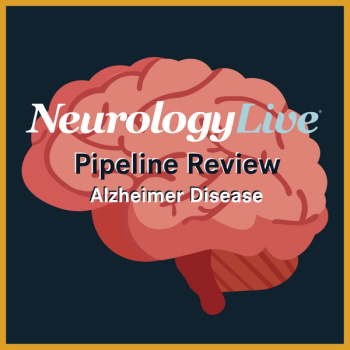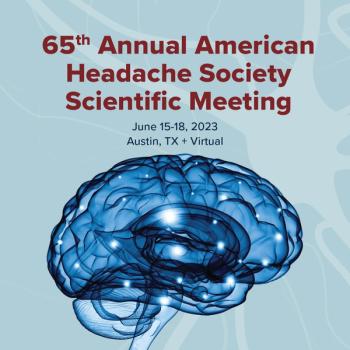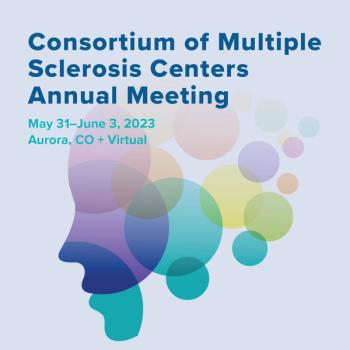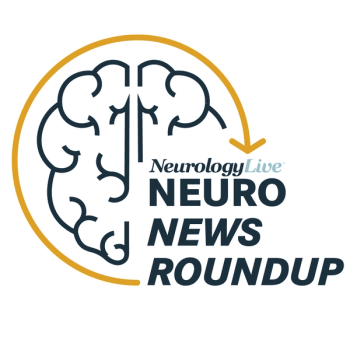
Maria Carrillo, PhD, chief science officer for the Alzheimer's Association, talked about the release of the updated diagnostic guidelines for Alzheimer disease, which incorporate plasma-based biomarkers.

Isabella Ciccone, Content Associate, NeurologyLive®, has been with the team since September 2022. Follow her on X @iciccone7 or email her at [email protected]

Maria Carrillo, PhD, chief science officer for the Alzheimer's Association, talked about the release of the updated diagnostic guidelines for Alzheimer disease, which incorporate plasma-based biomarkers.

Results suggest that the high burden of cerebral amyloid angiopathy-related lesions most likely underlies the 30%-60% incidence of amyloid-related imaging abnormalities in APOE e4/4 carriers treated with approved amyloid therapies.

Based on a collection of data from clinical trials in Alzheimer disease, the best way to represent and translate the findings to meaningful benefits is through the use of multiple frameworks.

A slowing of disease progression by 30% would result in clearly meaningful differences in patients with mild cognitive impairment and mild dementia.

Caution is warranted for older patients with Duchenne muscular dystrophy who are receiving gene therapy, according to details of a patient death in a single patient trial.

Li-San Wang, PhD, the Peter C. Nowell, MD, professor of pathology and laboratory medicine, Perelman School of Medicine at the University of Pennsylvania, discussed a study that aims to address the underrepresentation of Asian populations in Alzheimer disease research.

Chaoran Ma, MD, PhD, assistant professor at University of Massachusetts Amherst, talked about the association between bowel movement frequency, the gut microbiome, and cognitive function in patients living with dementia.

With the recent approval of lecanemab (Leqembi; Eisai), NeurologyLive took a closer look at the Alzheimer pipeline, and the potential agents clinicians should keep an eye on in the coming years.

According to diary data, caregiver's perceived reciprocity showed a substantial direct influence on the occurrence of behavioral symptoms on both the current day and the subsequent day for patients with Alzheimer disease and related dementias.

The highest proportions of patients with severe ocular impairment at baseline showed greater improvements in symptom severity on ravulizumab in comparison with placebo after 26 weeks.

Nearly half of patients treated with zilucoplan were considered responders on Myasthenia Gravis Activities of Daily Living (MG-ADL) at the first week, suggesting a rapid onset of efficacy.

Patients with generalized myasthenia gravis treated with efgartigimod consistently exceeded treatment compared with placebo regardless of gender in age, disease duration, BMI, and thymectomy.

Howard Fillit, MD, the cofounder and chief science officer of the Alzheimer's Drug Discovery Foundation, shared his reactions to the recent approval of lecanemab and how it opens doors for future drug development in Alzheimer disease.

Medicare recipients living with Alzheimer disease who have documented evidence of beta-amyloid plaque can now receive coverage for lecanemab through participating clinics and registries.

Findings from data on patients with various autoimmune disorders who used remibrutinib, a BTK inhibitor in development for multiple sclerosis, reported no safety concerns in laboratory analyses.

In the phase 3 OPTIMUM study of ponesimod, findings showed that MRI features in patients with multiple sclerosis were significantly associated with clinical scales.

Robert Glanzman, MD, the chief medical officer at the ImmunoBrain Checkpoint, talked about IBC-Ab002 as a promising anti-PD-L1 monoclonal antibody to improve cognition in patients with Alzheimer disease.

Vera Bril, MD, FRCPC, lead investigator of the MycarinG study, shared her reactions to recent approval of rozanolixizumab-noli, the first approved therapy for both subtypes of generalized myasthenia gravis in adults.

Reasons behind the CRL were not related to efficacy and do not impact Amneal’s 2023 financial guidance, which did not include IPX203 revenues.

A group of experts in the care of patients with neurological conditions—Amynah Pradhan, PhD; Katherine Podraza, MD, PhD; Elizabeth K. Seng, PhD; Olivia Begasse de Dhaem, MD, FAHS; Sait Ashina, MD, FAHS—shared their perspectives on hot topics of treatment and management in headache/migraine from the 2023 American Headache Society Annual Scientific Meeting.

A group of experts in the care of patients with neurological conditions—Gavin Giovannoni, MBBCh, PhD, FCP, FRCP, FRCPath; Andrew Solomon, MD; Anne H. Cross, MD; Anthony Feinstein, MPhil, PhD, FRCP; Brian G. Weinshenker, MD, FRCP—shared their perspectives on hot topics of treatment and management in multiple sclerosis from the 2023 Consortium of Multiple Sclerosis Centers Annual Meeting.

As a recap from AHS 2023, get caught up on some of the latest news in neurology as the NeurologyLive® team shares some of our data updates.

John DeLuca, PhD, senior vice president for Research and Training at Kessler Foundation, discussed the challenges in understanding and measuring fatigue in patients with multiple sclerosis.

As a recap from CMSC 2023, get caught up on some of the latest news in neurology as the NeurologyLive® team shares some of our data updates.

As part of our monthly clinician spotlight, NeurologyLive® highlighted migraine expert Jason J. Sico, MD, MHS, national director of the Headache Centers of Excellence program within the Veterans Health Administration.

In patients with early Parkinson disease, results showed that UB-312 was generally safe and well-tolerated, which supports the advancement of the vaccine into further clinical development.

In honor of Dravet Syndrome Awareness Day, held June 23, 2023, get caught up on some of the latest news in Dravet syndrome as the NeurologyLive® team shares some of our data updates.

B U. K. Li, MD, emeritus professor of pediatrics and gastroenterology at the Medical College of Wisconsin, highlights the significant overlap between cyclic vomiting syndrome, abdominal migraine, and migraine headaches.

Over an 8-week period, patients with migraine and major depressive disorder who were treated with fremanezumab showed significant reductions in HAMD-17 and PHQ-9 scores.

Garth T. Whiteside, PhD, head of preclinical development at Imbrium Therapeutics, discussed a phase 2 clinical study that explored the use of sunobinop in patients with insomnia during recovery from alcohol use disorder.